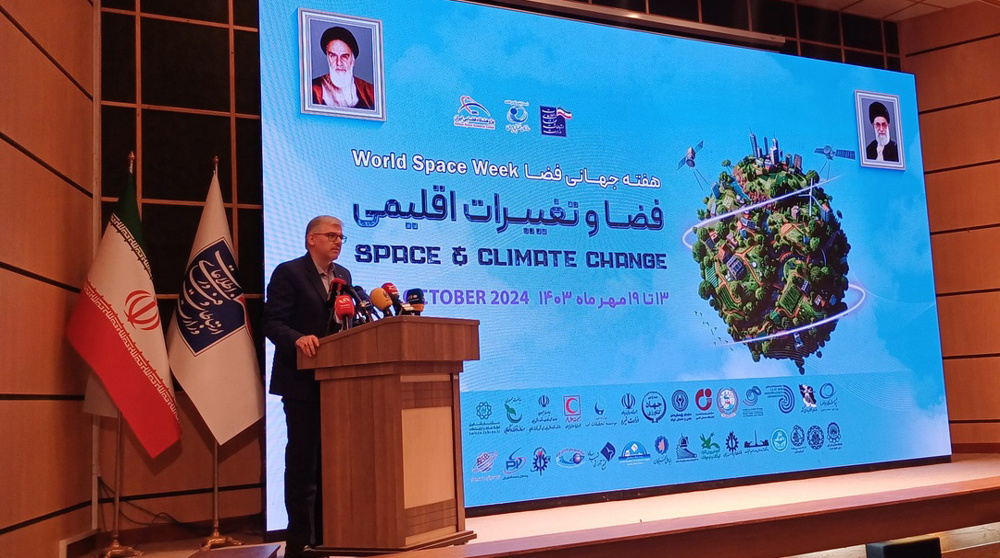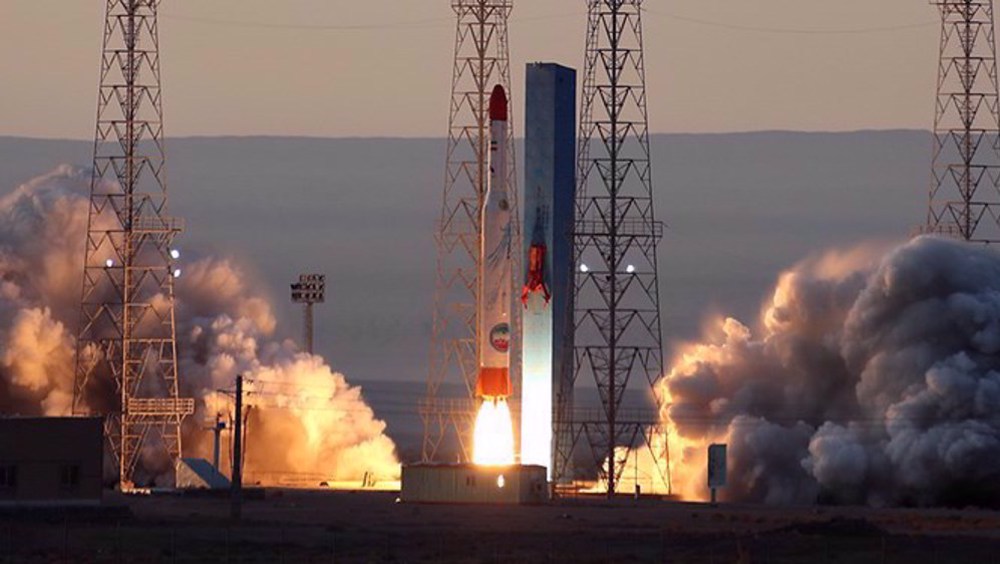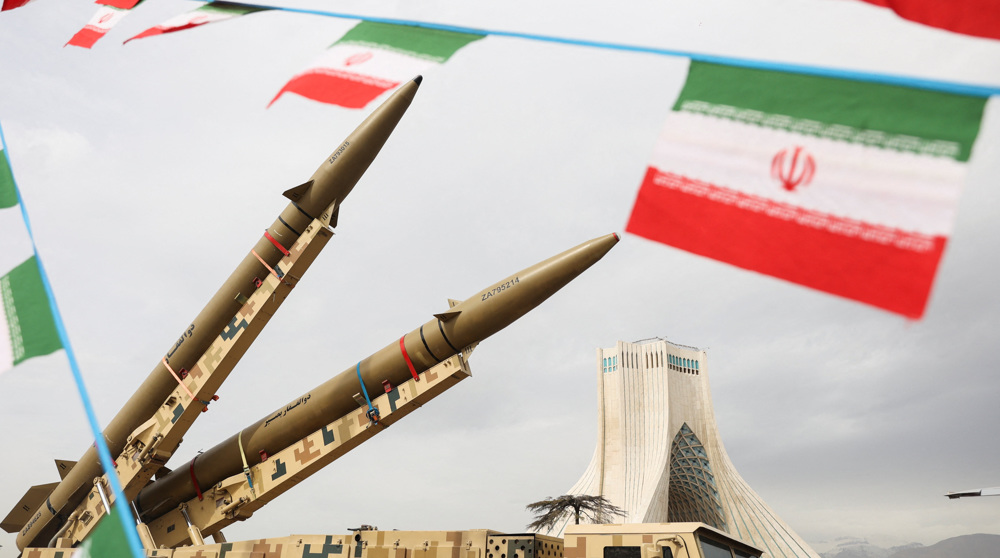Iran to launch three indigenous remote-sensing satellites into space by yearend: Official
The head of the Iranian Space Agency (ISA) says the country plans to launch three homegrown remote-sensing satellites into orbit by the end of the current Iranian calendar year, which ends on March 20, 2025.
Addressing the inaugural ceremony of the World Space Week in the capital Tehran on Saturday, Hassan Salariyeh stated that his agency aims to send Kowsar, Tolo-3 (Sunrise-3) and Zafar-2 (Victory-2) Earth observation satellites into orbit soon so that they would form a satellite constellation and work together as a system.
Salariyeh said Iran put the Chamran-1 satellite into space earlier this year, noting that the launch of the Saman orbital transfer block is high on the agenda of ISA.
He stated that the test launch of an IOT (Internet of Things) satellite system, in cooperation with the private sector, is among the most important programs of his agency for next year.
The satellite system will enable reception and transmission of data to ease proper decision-making at the time of disasters, particularly where terrestrial infrastructure is not functioning, Salariyeh added.
Iran broke into the global space race in February 2009 by launching its first domestically produced satellite, the Omid (Hope), into orbit. The launch was followed by sending a number of remote sensing satellites developed by local universities into space, which featured resolutions ranging from tens to hundreds of meters, he pointed out.
“Now, after nearly two decades, we are capable of manufacturing various communications and remote sensing satellites which are furnished with more sophisticated technologies and greater precision,” Salariyeh said.
Despite sanctions imposed by Western countries in recent years, Iran has taken giant strides in the civilian space program.
The country is among the world’s top 10 nations capable of developing and launching satellites.
On September 14, Iran successfully sent into orbit the domestically-developed Chamran 1 research satellite, registering another impressive stride in the country’s space program.
The satellite was put into orbit at an altitude of 550 kilometers (341 miles) above the Earth’s surface onboard a homegrown Qaem-100 space launch vehicle (SLV).
Several hours into the launch, the Iranian research satellite sent its first signals.
Chamran-1 satellite has been designed and manufactured by Iranian technicians at the space division of Iran Electronics Industries (SAIran), a state-owned subsidiary of Iran’s Ministry of Defense, in conjunction with experts at the Aerospace Research Institute (ARI) and private knowledge-based firms.
Weighing approximately 60 kilograms, the primary mission of the Iranian research satellite is to test hardware and software systems for orbital maneuver technology validation.
VIDEO | 'Land of Angels' sweeps 44th Fajr Film Fest. awards
Iran dismisses claims of detainee rights violations as ‘psychological warfare’
VIDEO | The business of humanity
VIDEO | 47th anniversary of Islamic Revolution marked in Russia
Two US Navy ships collide near South America amid Trump buildup
Over 2,000 Britons served in Israeli military during Gaza genocide: Report
Houthi: Iranian, Yemeni revolutions inspire Islamic nation in face of enemy plots
Iran defeating sanctions for decades since Islamic Revolution victory











 This makes it easy to access the Press TV website
This makes it easy to access the Press TV website